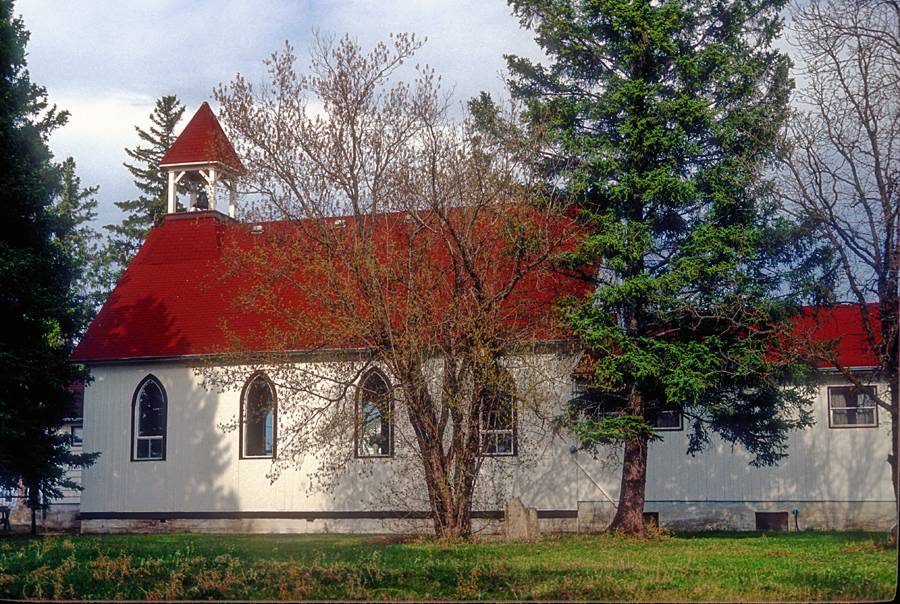Koostatak is a community northeast of Hodgson. Fisher River is an independent Cree Nation adjacent to Peguis First Nation, 220 km north of Winnipeg. In 2006 the two nations worked together to bring about the first ever Manitoba Indigenous Winter Games.
When the Post Office opened in 1905 the place was known as Fisher River. The name was changed in 1921 for Harry Koostatak, a life counsellor for many years to the Fisher River Band.
Koostatak is Cree for “let us fear” in the Biblical sense. Fisher River is from the Cree name Ochakeweo, from ochak (or orchik) meaning “fisher”, the fur-bearing member of the marten family.
Members of Fisher River Cree Nation traded with the Hudson Bay Company (HBC) at Norway House, the administrative centre for Rupert’s Land. They exchanged furs for such goods from England as metal and cloth. By 1875 there were about 800 Cree living in the Norway House settlement, hundreds of whom were employed by the HBC. It was a village of about 30 houses, and a church built in the early 1880s.
But, by the 1870s the natural resources in the area had been depleted so the HBC scaled back operations. For instance, about 200 Cree were put out of work when steamboats replaced York boats. The missionaries meanwhile were urging people to move further inland to find land suitable for agriculture.
Christianity came to Fisher River in 1840 when the Methodists established the Rossville mission, the first Methodist station west of Lake Superior. “Everyone was baptised by the time they arrived at Fisher River.” A later mission station was set up at Oxford House.
The predecessor of Stevens Memorial United Church was the Fisher River Methodist Church. When the Methodists joined with the Presbyterians at Union the church then became the United Church of Canada.
Around 1964, when a Christian Education building was added, the church was renamed in honour of Rev. Frederick Stevens who had replaced Rev. E. R. Steinhauer at Fisher River in 1907.
“The Very Reverend Stanley John “Stan” McKay was born and raised in Fisher River Cree Nation. He is the first Aboriginal person to lead the United Church of Canada, serving as moderator from 1992 to 1994, where he played a key role in working towards reconciliation. Reverend McKay coordinated the developments of the United Church’s national consultation process for the National Native Council, 1982-1987. During that time, he successfully advocated for the Church’s apology for its role in the cultural oppression of First Nations peoples. Reverend McKay is the recipient of numerous awards and honours, including a National Aboriginal Achievement Award. Victoria University will confer the Honorary Degree of Doctor of Sacred Letters, honoris causa, upon The Very Reverend Stanley John McKay.” (Victoria University website)
• Photographed in 1992.
• Published in Senior Scope, August 12, 2020.

